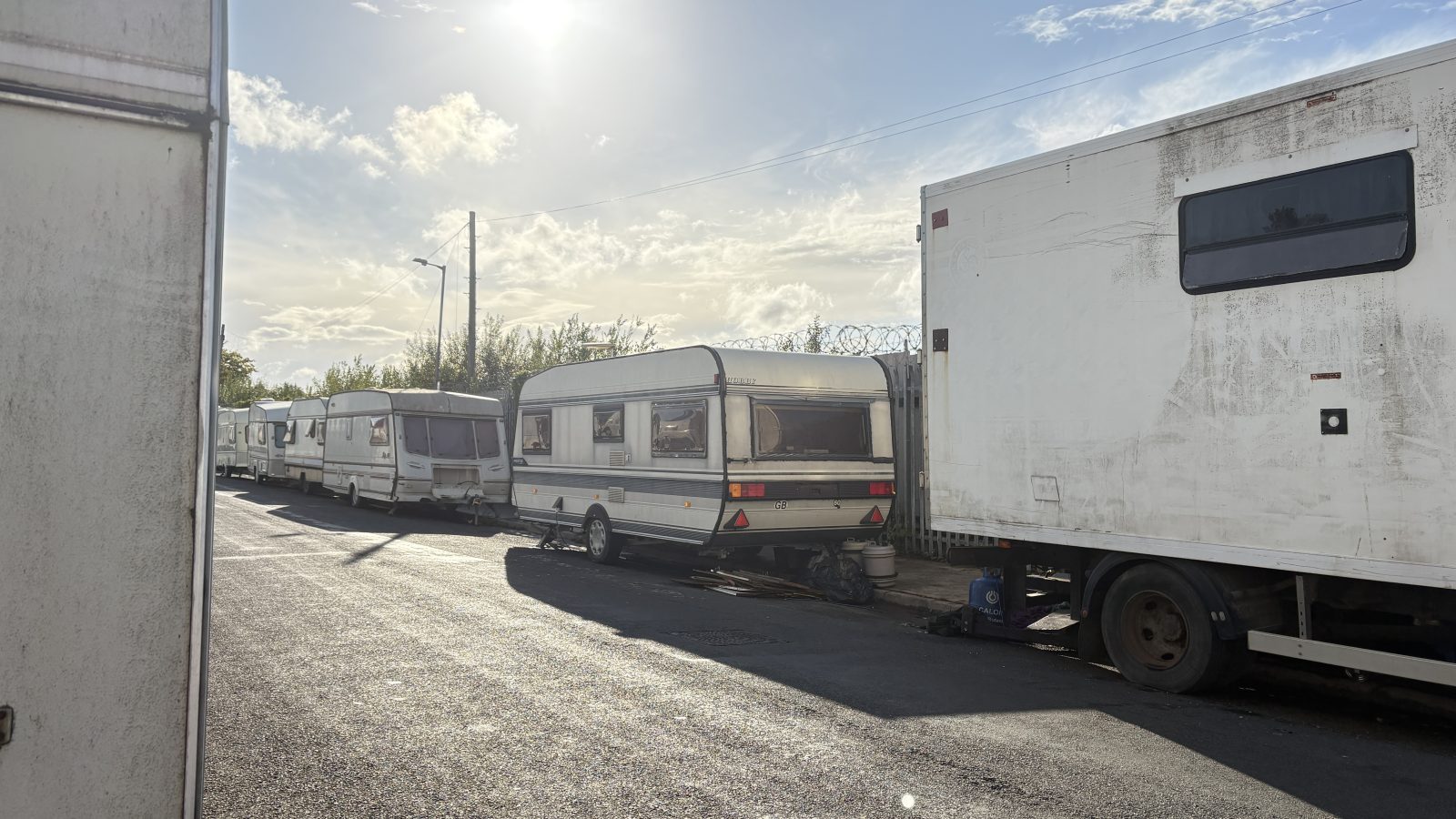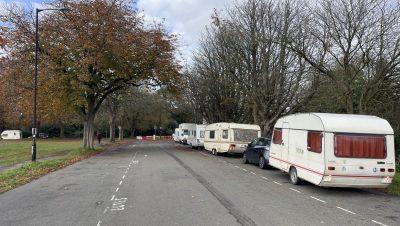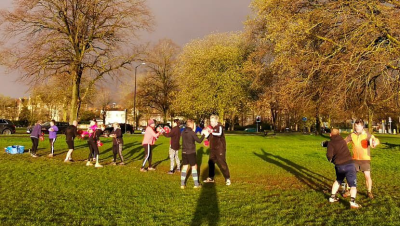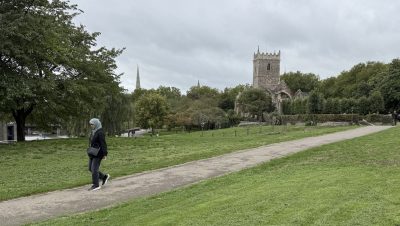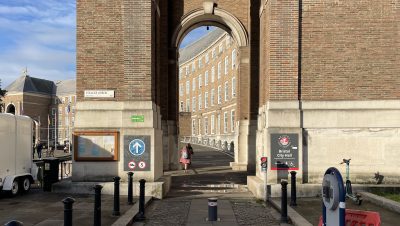News / Van Dwellers
New council policy could move van dwellers to ‘meanwhile sites’
A new policy could mean vehicle dwellers living on council-owned land or roads in Bristol are moved to temporary managed sites for a weekly service charge.
These ‘meanwhile sites’, five of which already exist, are one of the many plans Bristol City Council hopes to implement under its new ‘Responding to people living in vehicles 2026-2031’ policy, after it is finalised.
The proposed policy contains plans for additional meanwhile sites, enforcement action where required and continued support for all stakeholders, but financial restraints to back these plans remain a lingering concern.
is needed now More than ever
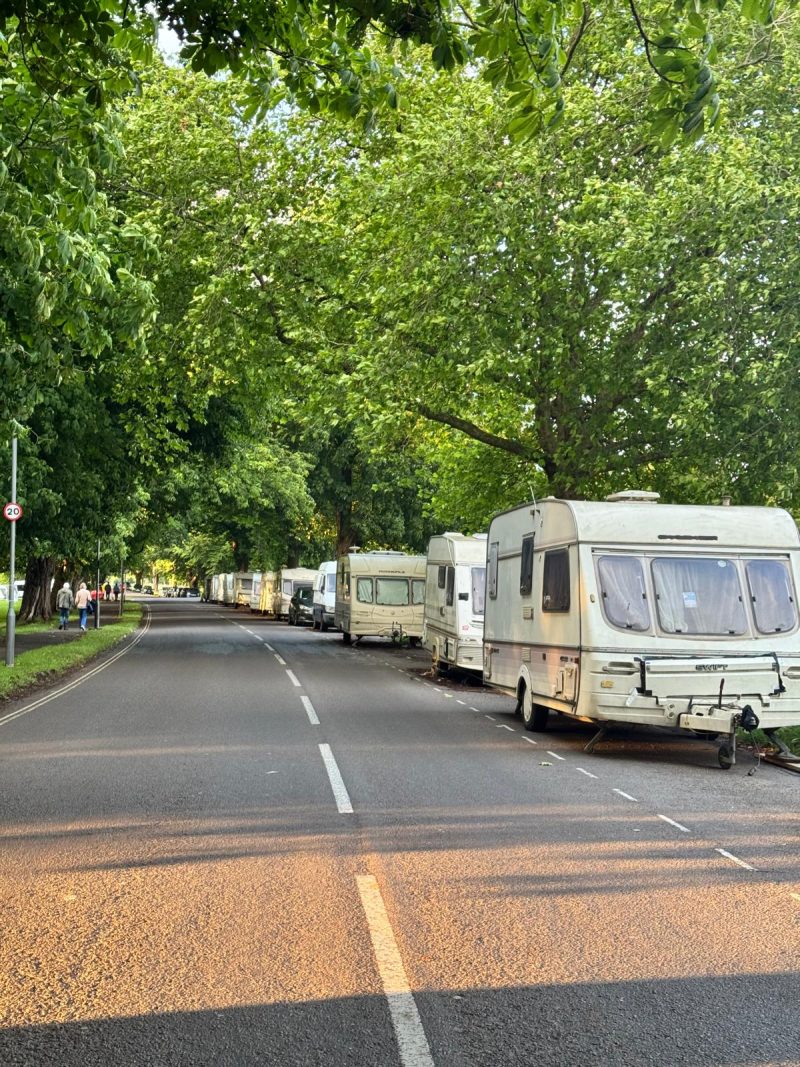
Vehicle dwellers on the Downs have sparked national curiosity in recent months – photo: Hannah Massoudi
“This is one of the challenges that we have really, that there is very, very constrained budgets,” Green chair of the homes and housing committee, Barry Parsons, told Bristol24/7.
“There’s no existing dedicated funding from the government to do this kind of work. There was support during the pandemic to provide public housing support, but that’s long gone.
“So we’re happy to do this out of our own resources. We’re having to find resources to do it.”
Since 2019, Bristol has reportedly seen a 300 per cent spike in the number of vehicle dwellers, with more than 600 people currently living in caravans and campervans across the city.
Under its proposed policy, the council hopes to significantly reduce this number while offering suitable alternatives.
Also speaking to Bristol24/7, head of service for private housing, accessible homes and travellers, Tom Gilchrist said: “There’s no single solution to this, there are options that need to be in place to help deal with, manage and support vehicle dwellers, and local communities.”
Gilchrist explained that this will begin with trying to understand what the aspirations of these van dwellers are, which can then be used as grounds to provide effective solutions.
“We can then put in place the option of offering suitable accommodation – whether it’s private rented, or social housing, or, where necessary, providing access to meanwhile sites,” Gilchrist said.
“The key element is that the housing and support offer, and welfare support offer, needs to be in place to identify exactly what the particular individual needs before giving them the provision of meanwhile sites.”
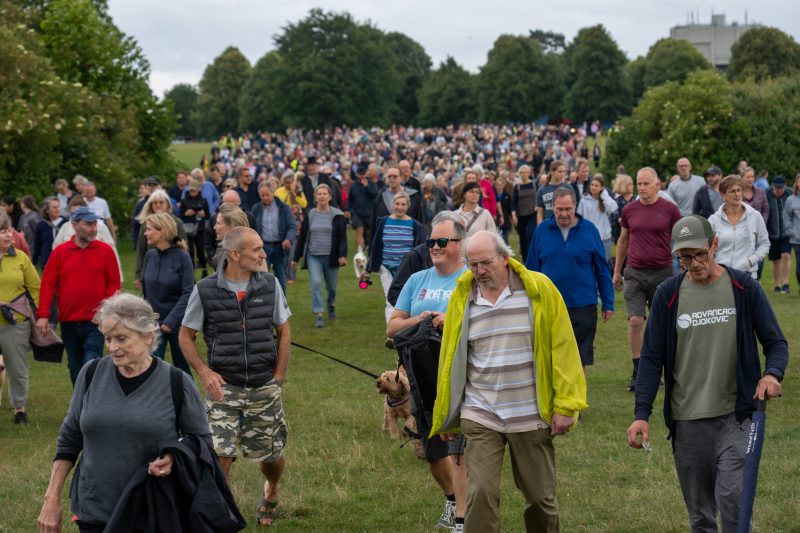
Hundreds assembled on the Downs in June as part of a campaign to Protect the Downs – photo: Rob Browne
Other than continued support for the van dwelling community and the creation of meanwhile sites, enforcement action also forms an integral part of the council’s new policy.
Once the council are made aware of van dwellers in an area, an initial assessment will be conducted to judge the situation. Depending on this assessment’s findings, the council will either launch an immediate enforcement action to remove these vehicles or provide a time-limited support period.
During the time-limited support period of three months, all alternatives, including meanwhile sites, will be explored before finding a suitable solution.
Despite a lack of clarity on how this policy will be funded, the council are hoping to grow the total number of pitches across meanwhile sites in Bristol to 250 by March 2026.
While the council website lists seven active meanwhile sites, two of these are said to have closed because of planned development at the locations.
The remaining five sites have a maximum of up to 25 vehicles, which Gilchrist hopes will remain the case for any future sites.
At these sites, people can expect facilities like clean water, chemical toilets and sewage waste disposal facilities and waste bins, providing an alternative to living on the kerbside or on squatted sites.
In a conscious effort to make the policy inclusive towards van dwellers, the council are promoting the use of respectful language, addressing associated stigma and ensuring their voices are taken into account.
A consultation that goes live at 10.30am on Thursday will ask everyone, including van dwellers, their opinions on the proposed policy.
Based on findings from the consultation, which will run until October 23, the policy will be redrafted in November before it is put into action.
Parsons has clarified that the policy has not been finalised and will be based on the findings of the consultation.
He said: “We need to be clear that once the policy is in place we will not be able to solve this issue overnight, and it will take time to meaningfully engage with people living in vehicles.
“However, with the right processes in place, we will be able to start offering real support to the people who need it, before moving to enforcement where necessary.
“I would like to assure people that this is a genuine consultation, and nothing has been finalised yet. Your feedback will help influence decisions, so please do take part in the survey.”
Main photo: Karen Johnson
Read next:
 Our newsletters emailed directly to you
Our newsletters emailed directly to you